Mitochondrial Quotes & Sayings
Enjoy reading and share 12 famous quotes about Mitochondrial with everyone.
Top Mitochondrial Quotes
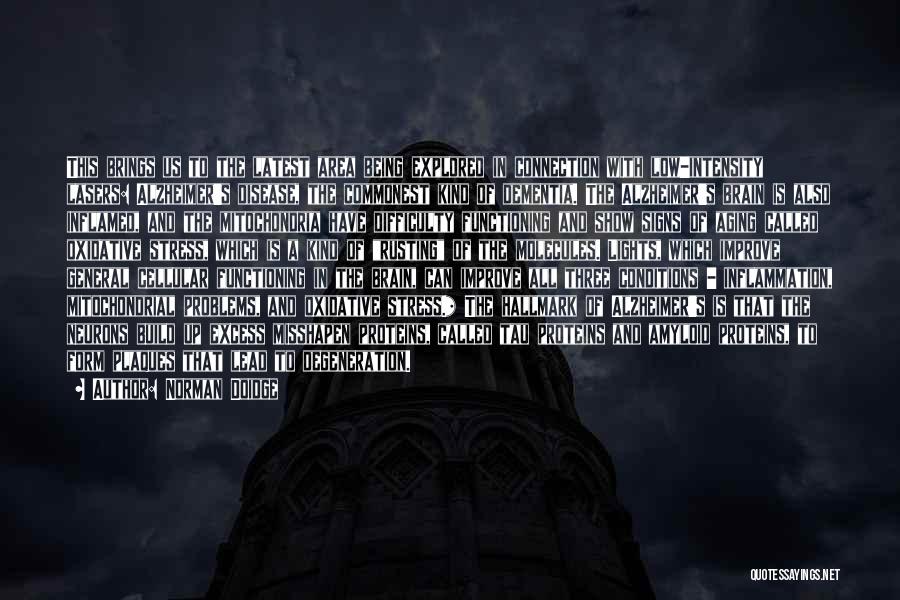
This brings us to the latest area being explored in connection with low-intensity lasers: Alzheimer's disease, the commonest kind of dementia. The Alzheimer's brain is also inflamed, and the mitochondria have difficulty functioning and show signs of aging called oxidative stress, which is a kind of "rusting" of the molecules. Lights, which improve general cellular functioning in the brain, can improve all three conditions - inflammation, mitochondrial problems, and oxidative stress.* The hallmark of Alzheimer's is that the neurons build up excess misshapen proteins, called tau proteins and amyloid proteins, to form plaques that lead to degeneration. — Norman Doidge
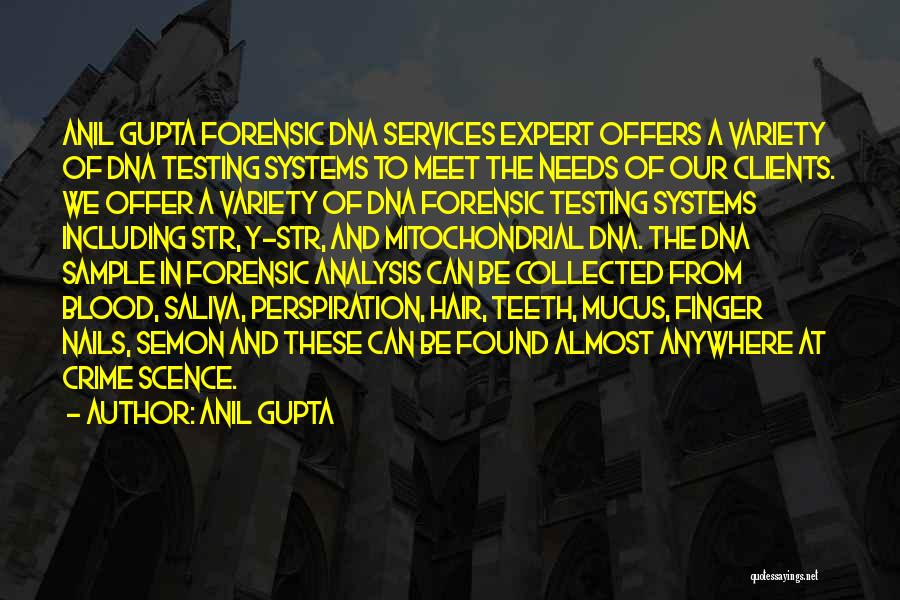
Anil Gupta Forensic DNA Services Expert offers a variety of DNA testing systems to meet the needs of our clients. We offer a variety of DNA forensic testing systems including STR, Y-STR, and mitochondrial DNA. The DNA Sample in Forensic Analysis can be collected from blood, saliva, perspiration, hair, teeth, mucus, finger nails, semon and these can be found almost anywhere at crime scence. — Anil Gupta
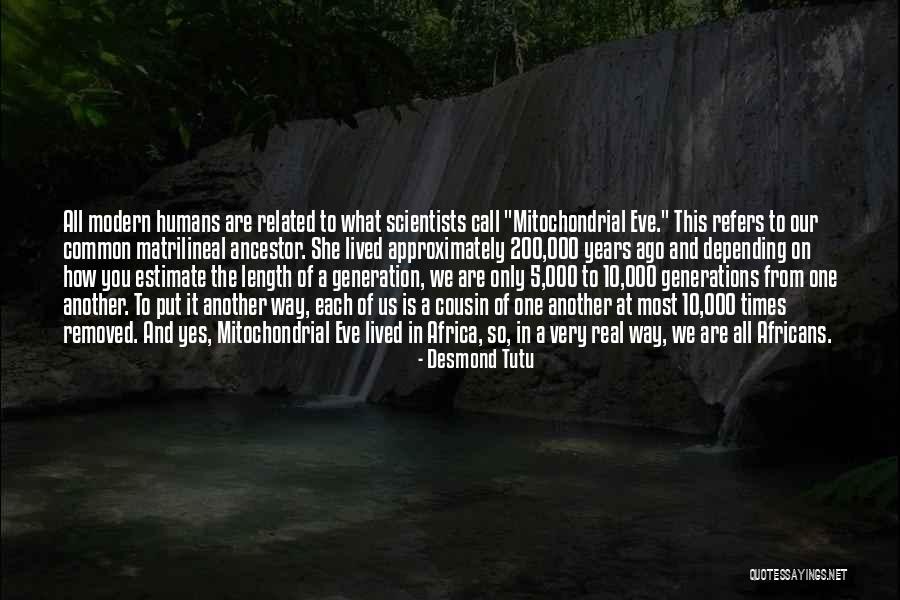
All modern humans are related to what scientists call "Mitochondrial Eve." This refers to our common matrilineal ancestor. She lived approximately 200,000 years ago and depending on how you estimate the length of a generation, we are only 5,000 to 10,000 generations from one another. To put it another way, each of us is a cousin of one another at most 10,000 times removed. And yes, Mitochondrial Eve lived in Africa, so, in a very real way, we are all Africans. — Desmond Tutu
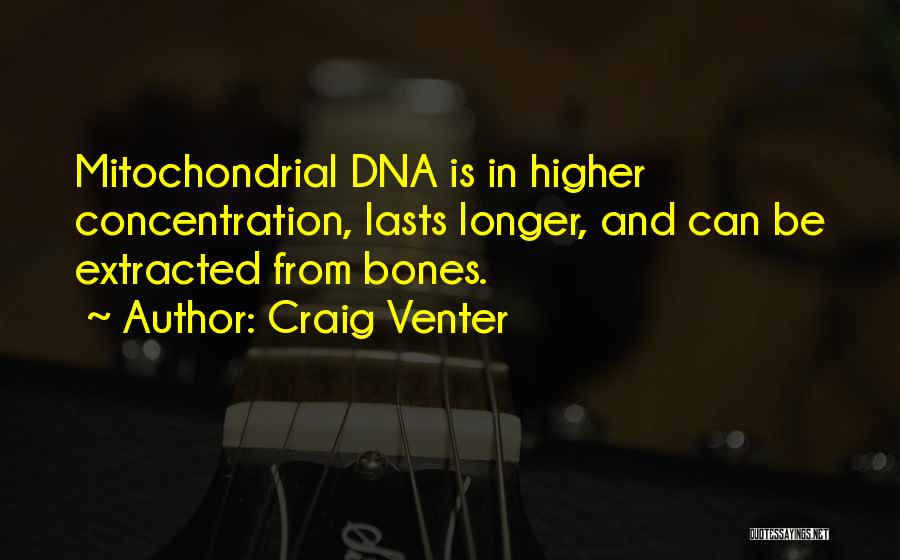
Mitochondrial DNA is in higher concentration, lasts longer, and can be extracted from bones. — Craig Venter
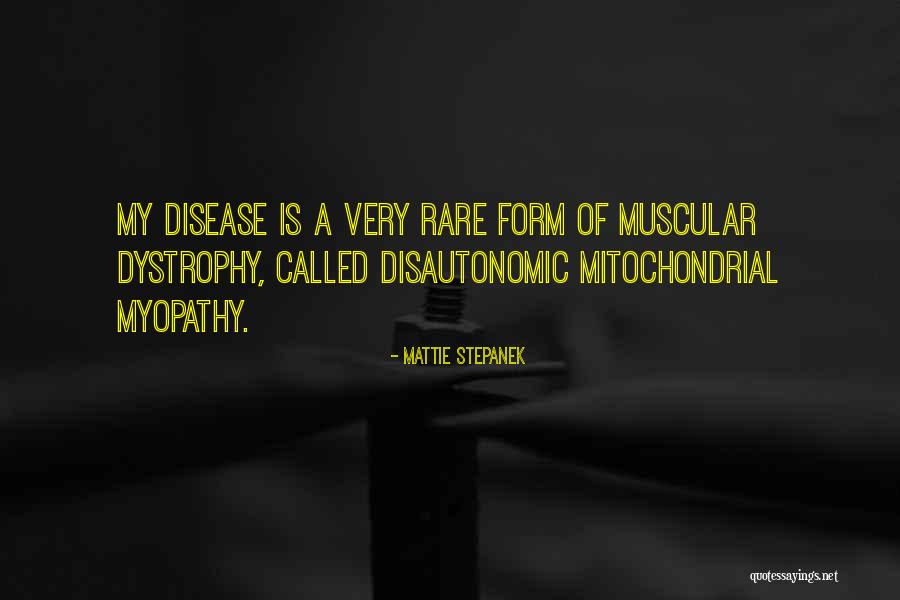
My disease is a very rare form of muscular dystrophy, called disautonomic mitochondrial myopathy. — Mattie Stepanek
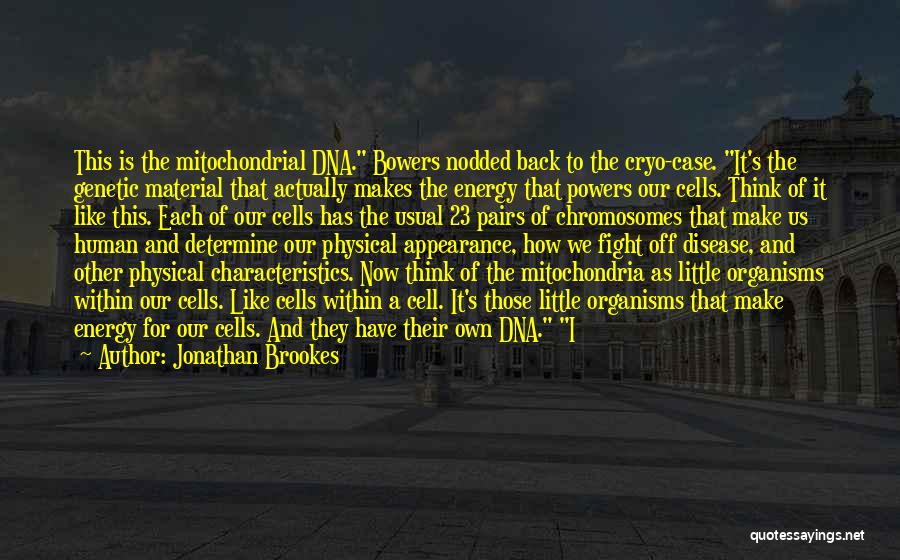
This is the mitochondrial DNA." Bowers nodded back to the cryo-case. "It's the genetic material that actually makes the energy that powers our cells. Think of it like this. Each of our cells has the usual 23 pairs of chromosomes that make us human and determine our physical appearance, how we fight off disease, and other physical characteristics. Now think of the mitochondria as little organisms within our cells. Like cells within a cell. It's those little organisms that make energy for our cells. And they have their own DNA." "I — Jonathan Brookes
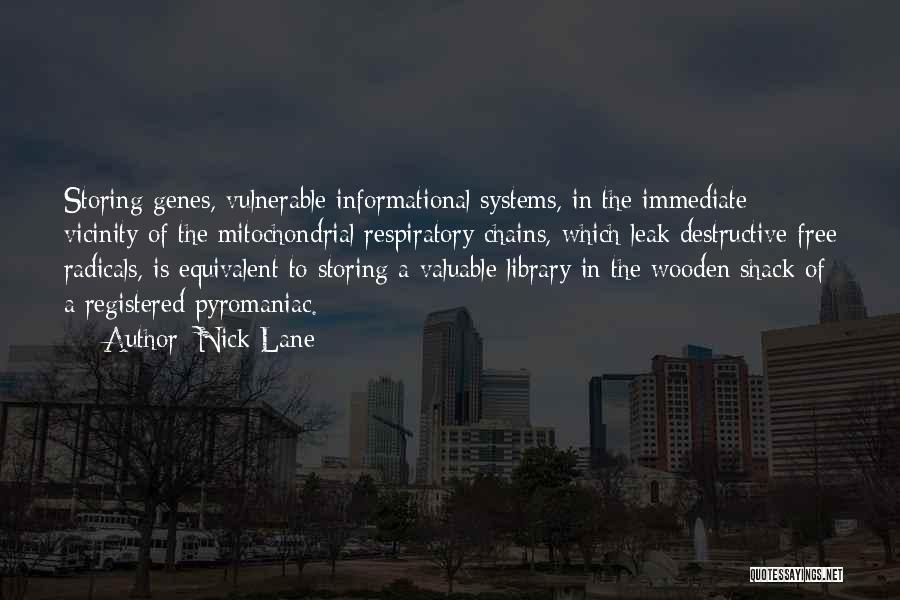
Storing genes, vulnerable informational systems, in the immediate vicinity of the mitochondrial respiratory chains, which leak destructive free radicals, is equivalent to storing a valuable library in the wooden shack of a registered pyromaniac. — Nick Lane
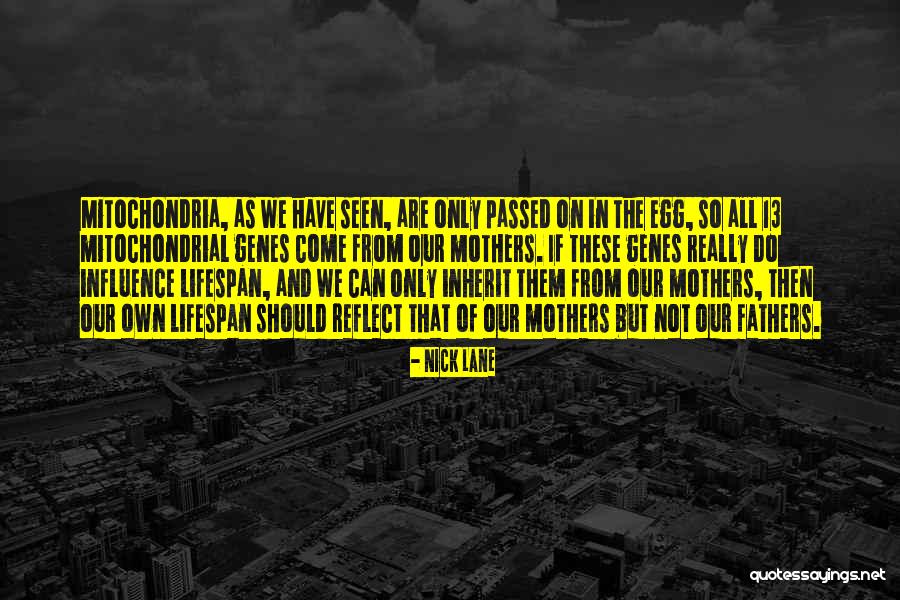
Mitochondria, as we have seen, are only passed on in the egg, so all 13 mitochondrial genes come from our mothers. If these genes really do influence lifespan, and we can only inherit them from our mothers, then our own lifespan should reflect that of our mothers but not our fathers. — Nick Lane
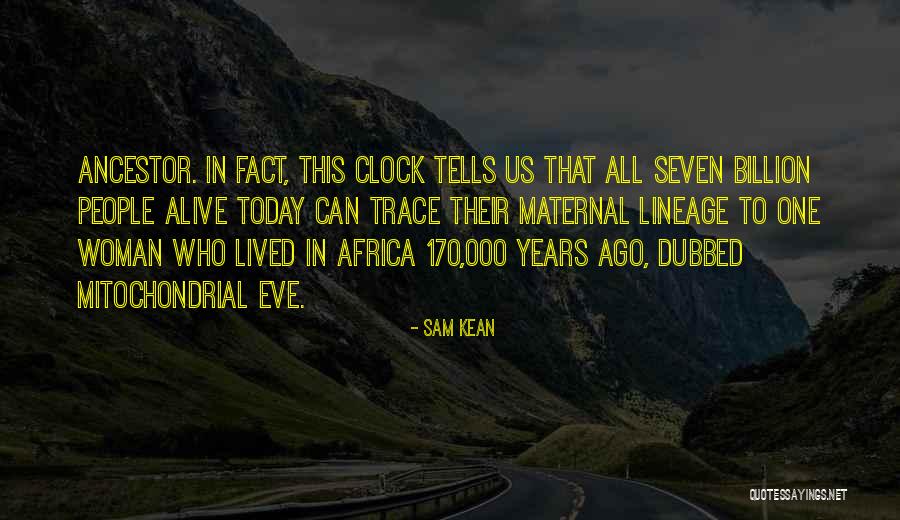
Ancestor. In fact, this clock tells us that all seven billion people alive today can trace their maternal lineage to one woman who lived in Africa 170,000 years ago, dubbed Mitochondrial Eve. — Sam Kean
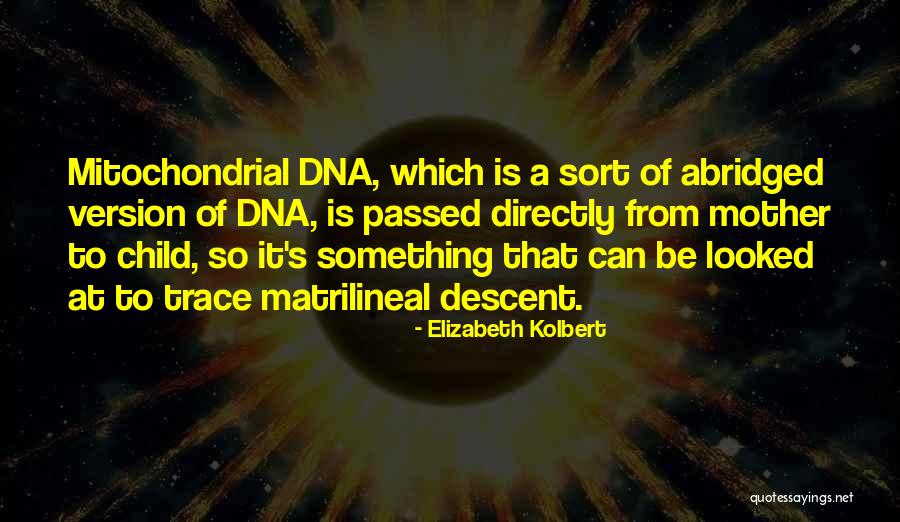
Mitochondrial DNA, which is a sort of abridged version of DNA, is passed directly from mother to child, so it's something that can be looked at to trace matrilineal descent. — Elizabeth Kolbert
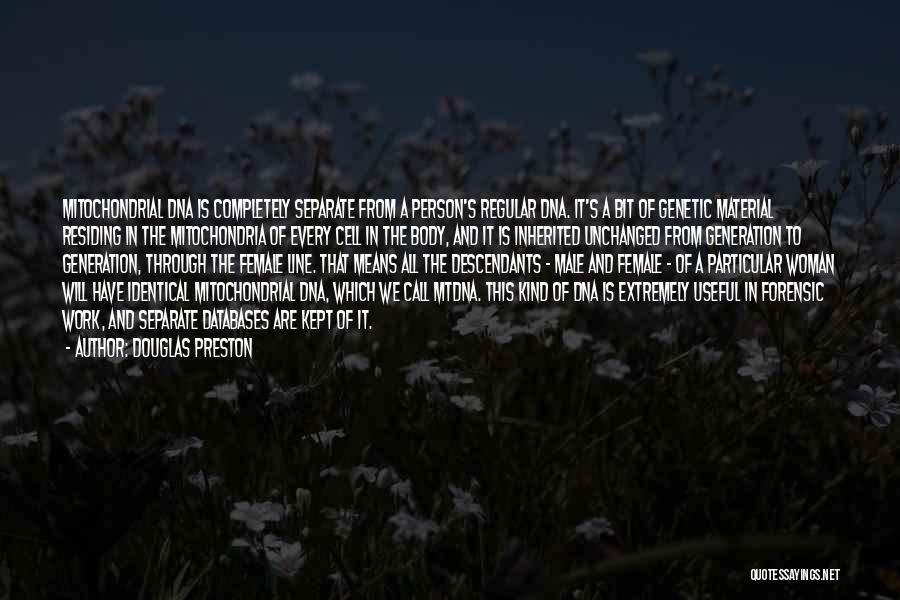
Mitochondrial DNA is completely separate from a person's regular DNA. It's a bit of genetic material residing in the mitochondria of every cell in the body, and it is inherited unchanged from generation to generation, through the female line. That means all the descendants - male and female - of a particular woman will have identical mitochondrial DNA, which we call mtDNA. This kind of DNA is extremely useful in forensic work, and separate databases are kept of it. — Douglas Preston
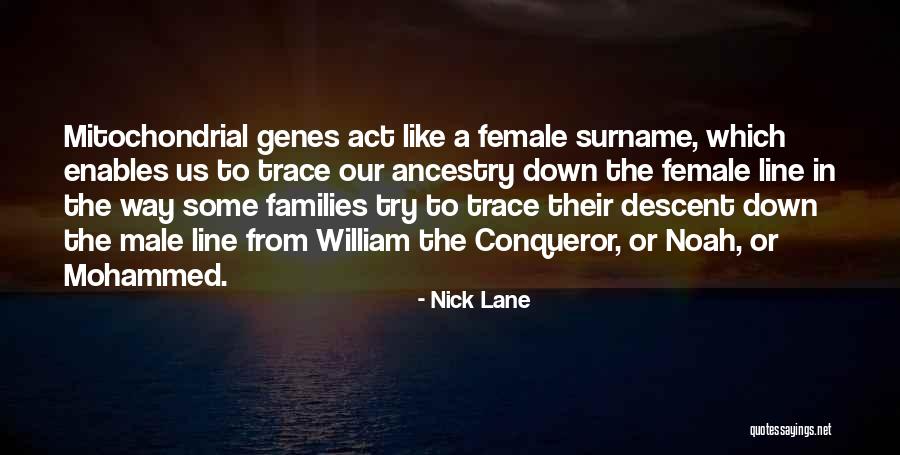
Mitochondrial genes act like a female surname, which enables us to trace our ancestry down the female line in the way some families try to trace their descent down the male line from William the Conqueror, or Noah, or Mohammed. — Nick Lane





